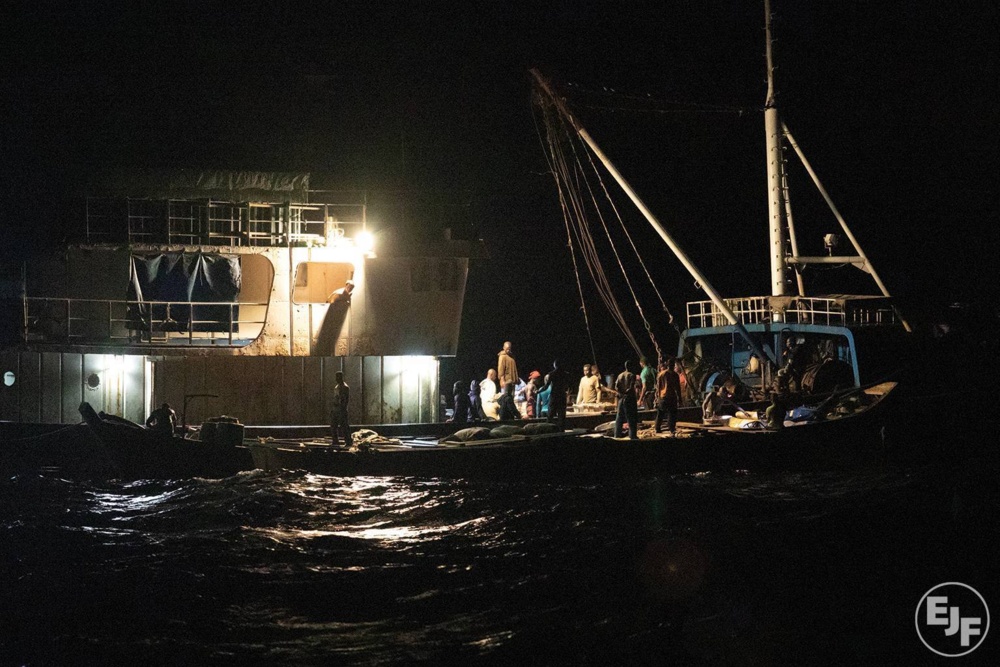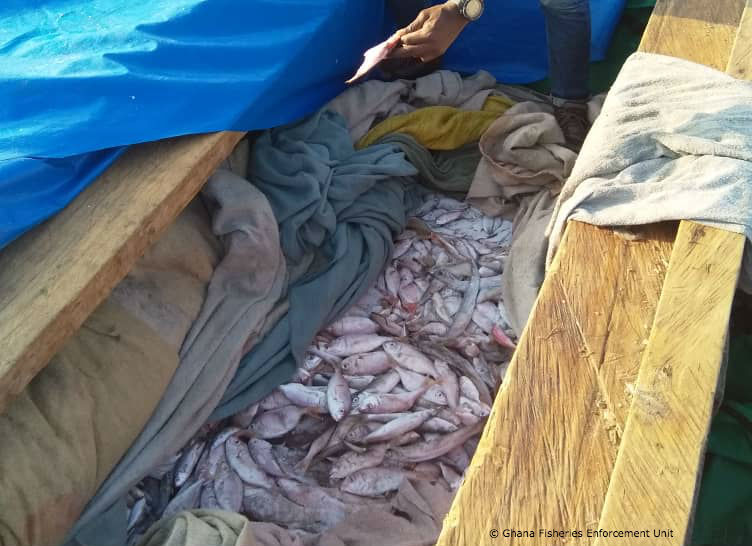
Trawler fined for targeting undersized fish with illegal nets in Ghana
A trawler has been apprehended in Ghanaian waters having been caught targeting ‘small pelagic’ fish using illegal nets. These fish populations are the main catch of local canoe fishers and are at risk of imminent collapse, threatening the livelihoods and food security of communities across the coast. The use of the full US$ 1 million fine is a welcome sign that the government is cracking down on the illegal and destructive practices of industrial trawlers.
Known as the ‘people’s fish’ in Ghana, small pelagics, such as sardinella, are the main catch for small-scale canoe fishers and a staple food in the country. However, populations have crashed over the past two decades, threatening the livelihoods of canoe fishers and the food security of coastal communities. Scientists predict the imminent collapse of the fishery if urgent action is not taken.
A major driver of this decline is the destructive ‘saiko’ trade, where industrial bottom trawlers illegally target small pelagic fish. The catches are unloaded on to specially adapted saiko canoes out at sea, before being sold to local communities.
The small-mesh nets found on board – which are illegal for an industrial trawler – show that this vessel was specifically targeting small pelagics. Analysis of the catch also showed that a significant proportion were undersized juveniles.
The Marine Police brought charges against the Chinese Captain, Chief Engineer and Second officer, and two Ghanaian crew members. Around 90% of Ghana’s industrial fishing fleet is linked to Chinese ownership, an investigation by EJF revealed last year. As Ghana’s fisheries laws prohibit foreigners from engaging in joint ventures in the industrial trawl sector, Chinese organisations operate through Ghanaian ‘front’ companies, using opaque corporate structures to import their vessels and register and obtain a licence.
Appearing before an out-of-court settlement committee, the owner of the vessel agreed to pay a fine of US$1 million. This is the statutory minimum fine under Ghana’s 2014 Fisheries Amendment Act. However, since the Act came into force other perpetrators have paid lower sums despite the law.
Over 2 million people in Ghana rely on small pelagic fish for their food and income. The government should be applauded for cracking down on illegal and destructive practices that are endangering Ghanaian livelihoods and food security. The concern now is ensuring that the fine is paid in full. In the past, fines have been negotiated down or opaque out-of-court settlements have obscured whether the law has been enforced. It is vital that this fine is paid to deter others, and that the outcome of this and other cases are published on the Ministry’s website.
SIGN UP FOR OUR EMAILS AND STAY UP TO DATE WITH EJF

